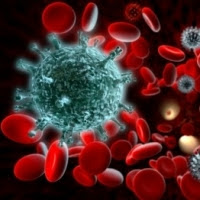Hi all.
Many are asking me the ages old question, "Does
complementary and alternative medicine work?", since there has been an
argument (among many) between conventional and alternative medicine,
that states that conventional medicine is more scientific and based on
scientific studies and the scientific method, including double blind
studies, clinical trials, etc., while alternative medicine tends to be
more anecdotal, based on hearsay, folk medicine, etc.
I am unsure as to whether this is an actual disagreement, a
philosophical difference, or something else entirely, so I will attempt
to clarify. These particular issues and arguments are vast, many and
relevant, and I do not wish to go into them here necessarily.
It is actually my personal opinion that texts and author/s are
relatively pretty good at stating and quoting different studies,
experiments, and statistics, related to alternative practices and
methods presented in their books and articles, in order to prove a point
or teaching.
This is actually somewhat more in line with mainstream medicine. I
think though there are instances where this falls short and it is not
exactly clear how a number, percentage, or success rate is arrived at
and the details around it and the specific study or experiment.
Research can be both quantitative as well as qualitative, and both
may be valid methods when used correctly. Rather than going into a
tirade against authors or texts which is probably not even necessary in
this case because the approach is generally pretty good, let's say I am
disagreeing in general with certain forms of “just” or "only" anecdotal
evidence.
I humbly believe that in many instances even if there are subjective
and / or anecdotal claims that they are better off put through the
ringer of quantitative research at the very least, or other methods to
prove the safety and success of certain alternative methods and
products.
Also more warnings and clarification should be employed, not only on
products themselves, but when discussing methods and products. Certain
stricter regulation at times is in good order as well as the testing of
products.
So all this is I am spouting, is also obviously subjective and anecdotal, but it stems from this fascinating personal story:
In dealing with certain skin problems related to eczema / tinea /
ringworm, I tried all sorts of natural methods wanting to avoid steroids
and other harmful substances and medications.
A number of friends began telling me about a substance called MMS /
Miracle Mineral Supplement or something, and were singing its praises as
a panacea and cure-all. I decided to jump on the band wagon, did some
reading on the internet, some basic so called research (I thought), and I
was pretty much sold.
One of the friends recommending the stuff asked me if she should
“test” me with Kinesiology / muscle testing to see if it would be good
for me. Seeing as this was over the phone / computer and being a purist
against practitioners testing their own muscles for a patient's needs, I
refused and said it was fine and I'd try it.
I began using the stuff, and after every time I took it, I felt
nauseous, dizzy and weak. The stuff itself gave off a bleachy smell that
reminded me clearly of car exhaust in a traffic jam. As recommended by
the product literature and those advising me, I cut down on the dosage
in order to reduce my so called “detox” reactions that I might be
having, but this did not change and my health felt worse, while my
original symptoms did not change.
After a number of weeks, enough was enough. I grabbed the bottle,
held it to my chest with my right hand, stood in middle of the room
without shoes, closed my eyes, and let my body loosen up giving it
slack. This is a very simple self Kinesiology test for affinity to
items, medicines, objects, foods, etc. and in general works quite well
(but it is dynamic and can sometimes change from time to time and
session to session especially after being treated for allergies which it
can also test for). I swayed back and almost fell over. BIG NO! That's
what my body was telling me and it don't lie.
The one friend who I refused to let test me over the phone, was then
upset I did not let her test me after she found out, and the clincher
is that my Naturopath at the time, an MD, Homeopath, Iridologist,
examined me, looked at me, and said with a serious look,”What have you
done to your liver?!” I thought to myself but did not tell him, “Let's
not even go there!” “I'm going to give you something among the remedies to cleanse and calm it.” Need I say more? Really?!
The stuff was sitting in my closet for a few years up until a few
months ago somehow after that, when I finally poured it out and recycled
the plastic bottle. Maybe I should have looked into it more, done more
research, asked around, or tested myself to begin with.
It still bears more looking into, but apparently according to many
including some reputable Naturopaths, despite all the claims, the stuff
is noxious, it does more harm than good, the fellow who produces, sells,
and markets the stuff is a fake and the whole thing is a scam in
general. Supposedly, even all the positive claims and attestations
surrounding MMS somehow originated from the fellow either directly or
indirectly. Whose to know who to believe or what to listen to? My
personal take... You decide for yourself...
Let's use numbers, statistics and measurements. Research is a means
of showing how things can or cannot be shown or proven as a whole. Even
if it's general and statistical. There's nothing wrong with anecdotal
evidence, but a lot more people would feel safer and would be more
convinced if the research were done and positive results proven. It
would really help CAM move forward in a well needed quantum leap.
So don't necessarily take anyone's word for it. Anecdotes are great,
but at least see how many people have them and whether positive or
negative. Do the research if and when you can to the best of your
ability, and speak to people and practitioners you trust who want what's best for you truly.
Wake up and be aware!


